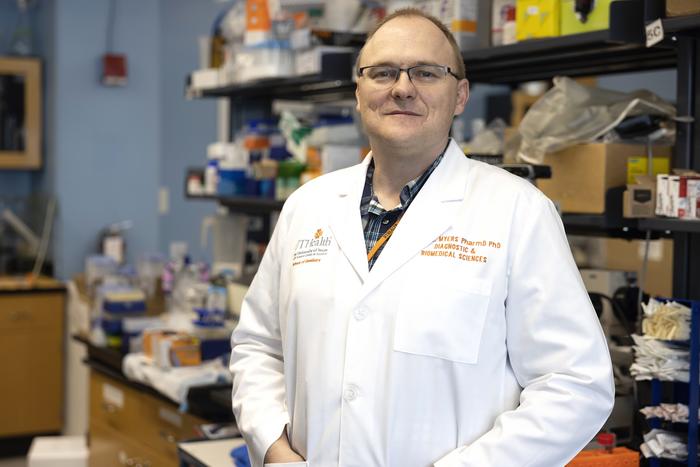A five-year, $2 million grant to study the pharmacological effects of the areca nut, commonly known as the betel nut, was awarded to a UTHealth Houston researcher by the National Institute on Drug Abuse, part of the National Institutes of Health (NIH).

Credit: UTHealth Houston
A five-year, $2 million grant to study the pharmacological effects of the areca nut, commonly known as the betel nut, was awarded to a UTHealth Houston researcher by the National Institute on Drug Abuse, part of the National Institutes of Health (NIH).
The study, led by Alan Myers, PharmD, PhD, associate professor of pharmacology with UTHealth Houston School of Dentistry, will investigate how chemicals in the areca nut are metabolized in the body’s organs, particularly in the liver, and how that process is disrupted by alcohol or menthol.
“On the global level, areca nut chewing has been around since antiquity, but still poses a major public health threat because it is addictive and toxic,” Myers said. “I want to understand how metabolism of areca chemicals, called alkaloids, influences liver toxicities and addiction when users also ingest alcohol or menthol.”
The areca nut grows on palm trees found in tropical areas of the Pacific, South Asia, and eastern Africa. It is most often chewed wrapped inside betel plant leaves for its psychoactive effects. According to the NIH, it is the fourth most common form of addiction after tobacco, alcohol, and caffeine, and is consumed by about 10% of people in the world. Areca use has been reported in Houston and surrounding communities, but how widespread is not known, Myers said.
“It is chewed by millions worldwide for its mood-altering effects like euphoria, a sense of ease and well-being, and greater mental focus,” Myers said. “But the side effects of prolonged consumption of the nut are staggering, damaging many parts of the body such as the orofacial region and liver.”
Areca nut use is addictive and has been linked to oral cancer, cirrhosis of the liver, and liver cancer.
When chewed, alkaloids from the nut are released and travel through the body and eventually become toxic to cells. Myers theorizes that special proteins in the liver called drug metabolizing enzymes are a first defense against the alkaloids, and his initial focus will determine which enzymes are involved. His preliminary research has demonstrated that alcohol has a significant interaction with a main alkaloid in the nut, which could explain why using both substances lead to greater harm, he said.
“Our ultimate goal is to improve the health of areca substance users by advancing insight about areca nut pharmacology and addiction, and yield a scientific foundation for implementing strategies to lessen this psychoactive substance’s toxic burden,” Myers said.
Co-investigator on the study is Therese A. Kosten, PhD, professor and director of developmental, cognitive, and behavioral neuroscience in the Department of Psychology at the University of Houston. NIH Grant R01DA056544 funds this research.
Media Inquiries: 713-500-3030




